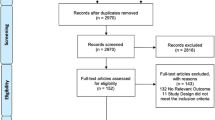Abstract
To analyze older adults’ definitions of successful aging in Bangladesh. The purposively selected study sample comprised twelve participants who were aged over 60. Interviews using in-depth semi-structured questionnaires were conducted based on participants’ chosen mode, either face-to-face, or by phone. Findings of this study support that successful aging is multidimensional - that is – for Bangladeshis successful aging encompasses dimensions such as adaptation to an aging body, financial security, family and intergenerational care, and social participation. Older adults’ emphases on all these dimensions were qualitatively different from those relevant in western societies. Bangladeshis see disease and disability as a normal part of aging and do not emphasize freedom from disease or longevity as much as North Americans and the US-focused successful aging discourses do. Family care is a key component of successful aging in Bangladesh. While in western models functional independence has been emphasized, for Bangladeshi older adults’ adaptations to changing body, co-residing with children, being financially, physically, and emotionally dependent on family and receiving their care are viewed as normal and appropriate. Cross-cultural comparisons in this study suggest that what it means and entails to age well differ across cultures. This study highlights the need among health professionals to understand Bangladeshi culture, with its specific beliefs and values, as it relates to the views of aging well.
Similar content being viewed by others
References
Administration on Aging (AoA) (2016). Administration for Community Living. Retrieved from http://www.aoa.acl.gov/AoA_Programs/HCLTC/Caregiver/.
Barusch, A., Gringeri, C., & George, M. (2011). Rigor in qualitative social work research: A review of strategies used in published articles. Social Work Research, 35(1), 11–19.
Boyatzis, R. E. (1998). Transforming qualitative information: Thematic analysis and code development. Thousand Oaks: Sage.
Brijnath, B. (2014). Unforgotten: Love and the culture of dementia Care in India. Berghahn Books.
Cameron, L. H., Kabir, Z. N., Khanam, M. A., Wahlin, Å., & Streatfield, P. K. (2010). Earning their keep: The productivity of older women and men in rural Bangladesh. Journal of Cross-Cultural Gerontology, 25(1), 87–103. doi:10.1007/s10823-010-9109-7.
Chaves, M. L., Camozzato, A. L., Eizirik, C. L., & Kaye, J. (2009). Predictors of normal and successful aging among urban-dwelling elderly Brazilians. The Journals of Gerontology, 64(5), 597–602. doi:10.1093/geronb/gbp059.
Cho, J., Martin, P., & Poon, L. W. (2015). Successful aging and subjective well-being among oldest-old adults. Gerontologist, 55(1), 132–143.
Cohen, L. (1998). No aging in India: Alzheimer's, the bad family, and other modern things. United States of America: University of Calif. Press.
Cowlishaw, S., Niele, S., Teshuva, K., Browning, C., & Kendig, H. (2013). Older adults' spirituality and life satisfaction: A longitudinal test of social support and sense of coherence as mediating mechanisms. Ageing and Society, 33(7), 1243–1262.
Creswell, J. W., & Miller, D. L. (2000). Determining validity in qualitative inquiry. Theory Into Practice, 39(3), 124–130.
Crowther, M. R., Parker, M. W., Achenbaum, W. A., Larimore, W. L., & Koenig, H. G. (2002). Rowe and Kahn's model of successful aging revisited: Positive spirituality--the forgotten factor. Gerontologist, 42(5), 613–620.
Dawes, S. E., Palmer, B. W., Allison, M. A., Ganiats, T. G., & Jeste, D. V. (2011). Social desirability does not confound reports of wellbeing or of socio-demographic attributes by older women. Ageing and Society, 31(3), 438–454.
Depp, C. A., & Jeste, D. V. (2006). Definitions and predictors of successful aging: A comprehensive review of larger quantitative studies. American Journal of Geriatric Psychiatry, 14(1), 6–20.
Ekerdt, D. J. (1986). The busy ethic: Moral continuity between work and retirement. Gerontologist, 26(3), 239–244.
Ferdous, T., Cederholm, T., Kabir, Z. N., Hamadani, J. D., & Wahlin, Å. (2010). Nutritional status and cognitive function in community-living rural Bangladeshi older adults: Data from the poverty and health in ageing project. Journal of the American Geriatrics Society, 58(5), 919–924.
Fernandez-Ballesteros, R., Garcia, L. F., Abarca, D., Blanc, L., Efklides, A., Kornfeld, R., et al. (2008). Lay concept of aging well: Cross-cultural comparisons. Journal of the American Geriatrics Society, 56(5), 950–952.
Fry, C. L., Dickerson-Putman, J., Draper, P., Ikels, C., Keith, J., Glascock, P., & Harpending, H. C. (2007). Culture and the meaning of a good old age. In J. Sokolovsky (Ed.), The cultural context of aging: Worldwide perspectives (p. 104). Westport: Bergin & Garvey.
Ghuman, S., & Ofstedal, M. B. (2004). Gender and family support for older adults in Bangladesh. Population Studies Center, University of Michigan, Ann Arbor.
Gilleard, C., & Higgs, P. (2013). Ageing, corporeality and embodiment. London & New York: Anthem Press.
Glaser, B. (2001). The grounded theory perspective: Conceptualisation contrasted with description. Mill Valley: Sociology Press.
Glass, T. A. (2003). Assessing the success of successful aging. Annals of Internal Medicine, 139, 382–383.
Gullette, M. M. (2011). Agewise: Fighting the new ageism in America. Chicago: The University of Chicago Press, 294 p.
Gureje, O. S. (2014). Profile and determinants of successful aging in the Ibadan study of ageing. Journal of the American Geriatrics Society, 62(5), 836–842.
Hadfield, J. C. (2014). The health of grandparents raising grandchildren. Journal of Gerontological Nursing, 40(4), 32–42.
Hilton, J., Gonzalez, C., Saleh, M., Maitoza, R., & Anngela-Cole, L. (2012). Perceptions of successful aging among older Latinos in cross-cultural context. Journal of Cross-Cultural Gerontology, 27(3), 183–199.
Holstein, M. B., & Minkler, M. (2003). Self, society, and the "new gerontology". Gerontologist, 43(6), 787–796.
Hsu, H., & Jones, B. L. (2012). Multiple trajectories of successful aging of older and younger cohorts. The Gerontologist, 52(6), 843–856. doi:10.1093/geront/gns005.
Jesmin, S. S., Amin, I., & Ingman, S. R. (2011). Ageing and caregiving crisis in the low and middle income societies. Indian Journal of Gerontology, 25(3), 309–328.
Katz, S. (2000). Busy bodies: Activity, aging, and the management of everyday life. Journal of Aging Studies, 14(2), 135.
Lamb, S. (2010). Love and aging in Bengali families. In D. P. Mines & S. Lamb (Eds.), Everyday life in South Asia (pp. 62–74). Bloomington: Indiana UP.
Lamb, S. (2014). Permanent personhood or meaningful decline? Toward a critical anthropology of successful aging. Journal of Aging Studies, 29, 41–52.
Lee, J. (2009). A pilot study on the living-alone, socio-economically deprived older Chinese people’s self-reported successful aging: A case of Hong Kong. Applied Research In Quality Of Life, 4(4), 347–363. doi:10.1007/s11482-009-9085-7.
Lewis, J. (2014). The role of the social engagement in the definition of successful ageing among Alaska native elders in Bristol Bay, Alaska. Psychology and Developing Societies, 26(2), 263–290. doi:10.1177/0971333614549143.
Ng, S. H., Cheung, C., Chong, A. L., Woo, J., Kwan, A. H., & Lai, S. (2011). Aging well socially through engagement with life: Adapting Rowe and Kahn's model of successful aging to Chinese cultural context. International Journal of Aging and Human Development, 73(4), 313–330.
Nilsson, J., Grafström, M., Zaman, S., & Kabir, Z. N. (2005). Role and function: Aspects of quality of life of older people in rural Bangladesh. Journal of Aging Studies, 19(3), 363–374. doi:10.1016/j.jaging.2004.07.006.
Oktay, J. S. (2004). Grounded theory. In D. Padgett (Ed.), The qualitative research experience (pp. 23–46). Belmont: Wadsworth/Thomson Learning.
Phelan, E. A., Anderson, L. A., LaCroix, A. Z., & Larson, E. B. (2004). Older adults’ views of “successful aging”—How do they compare with researchers’ definitions? Journal of the American Geriatrics Society, 52, 211–216. doi:10.1111/j.1532-5415.2004.52056.x.
Purcal, C., Brennan, D., Cass, B., & Jenkins, B. (2014). Grandparents raising grandchildren: Impacts of life course stage on the experiences and costs of care. Australian Journal of Social Issues, 49(4), 467–488.
Reichstadt, J., Sengupta, G., Depp, C. A., Palinkas, L. A., & Jeste, D. V. (2010). Older adults' perspectives on successful aging: Qualitative interviews. American Journal of Geriatric Psychiatry, 18(7), 567–575.
Rossen, E. K., Knafl, K. A., & Flood, M. (2008). Older women's perceptions of successful aging. Activities, Adaptation and Aging, 32(2), 73–88.
Rowe, J., & Kahn, R. (1998). Successful Aging. New York: Random House.
Savishinsky, J. (2004). Volunteer and the sannyasin: Archetypes of retirement in America and India. International Journal of Aging and Human Development, 59(1), 25–41.
Tareque, M. I., Begum, S., & Saito, Y. (2013a). Gender differences in disability-free life expectancy at old ages in Bangladesh. Journal of Aging and Health, 25(8), 1299–1312. doi:10.1177/0898264313501388.
Tareque, M. I., Hoque, N., Islam, T. M., Kawahara, K., & Sugawa, M. (2013b). Relationships between the active aging index and disability-free life expectancy: A case study in the Rajshahi district of Bangladesh. Canadian Journal on Aging, 32(4), 417–432.
Torres, S. (2006). Different ways of understanding the construct of successful aging: Iranian immigrants speak about what aging well means to them. Journal of Cross-Cultural Gerontology, 21, 1–23. doi:10.1007/s10823-006-9017-z.
UNDP (2015). World Population Prospects. Retrieved from http://esa.un.org/unpd/wpp/publications/files/key_findings_wpp_2015.pdf.
UNICEF (2015) Bangladesh at a glance. Retrieved from http://www.unicef.org/bangladesh/cbg_%2818.10.08%29.pdf.
Varshney, S. (2007). Predictors of successful aging: Associations between social network patterns, life satisfaction, depression, subjective health and leisure time activity for older adults in India. UMI Dissertation Services, ProQuest Information and Learning, Ann Arbor.
Wahlin, Å., Palmer, K., Sternäng, O., Hamadani, J. D., & Kabir, Z. N. (2015). Prevalence of depressive symptoms and suicidal thoughts among elderly persons in rural Bangladesh. International Psychogeriatrics, 27(12), 1999–2008. doi:10.1017/S104161021500109X.
Weil, J. (2008). Transcending the reification of "old women's" bodies: Some sociological theorists' views. Journal of Aging, Humanities, and the Arts, 2(1), 50–61.
Willcox, D. C., Willcox, B. J., Sokolovsky, J., & Sakihara, S. (2007). Cultural context of "successful aging" among older women weavers in a northern Okinawan village: The role of productive activity. Journal of Cross-Cultural Gerontology, 22(2), 137–165.
Author information
Authors and Affiliations
Corresponding author
Ethics declarations
Funding Sources
None.
Conflict of Interest
The author declares that he has no conflict of interest.
Rights and permissions
About this article
Cite this article
Amin, I. Perceptions of Successful Aging among Older Adults in Bangladesh: An Exploratory Study. J Cross Cult Gerontol 32, 191–207 (2017). https://doi.org/10.1007/s10823-017-9319-3
Published:
Issue Date:
DOI: https://doi.org/10.1007/s10823-017-9319-3




